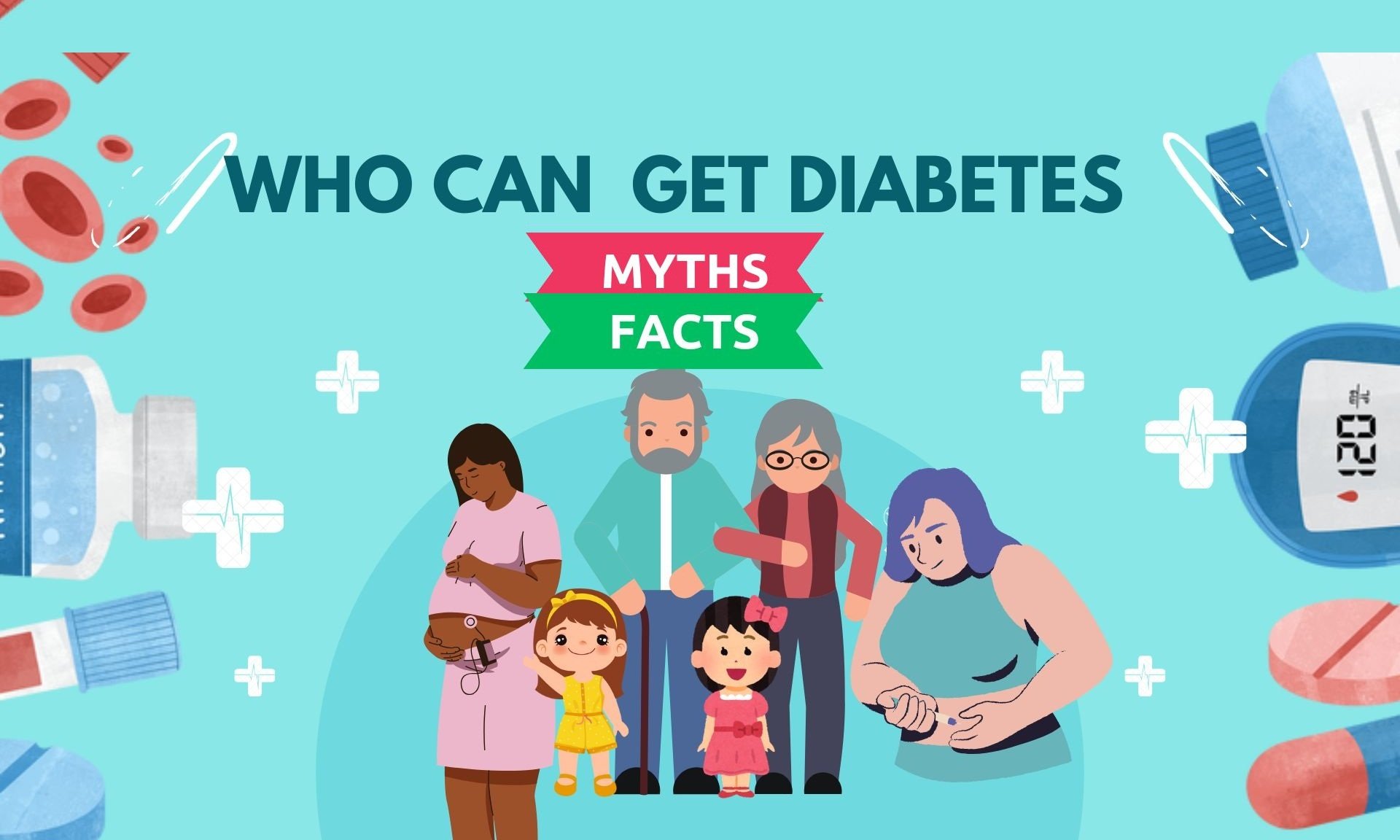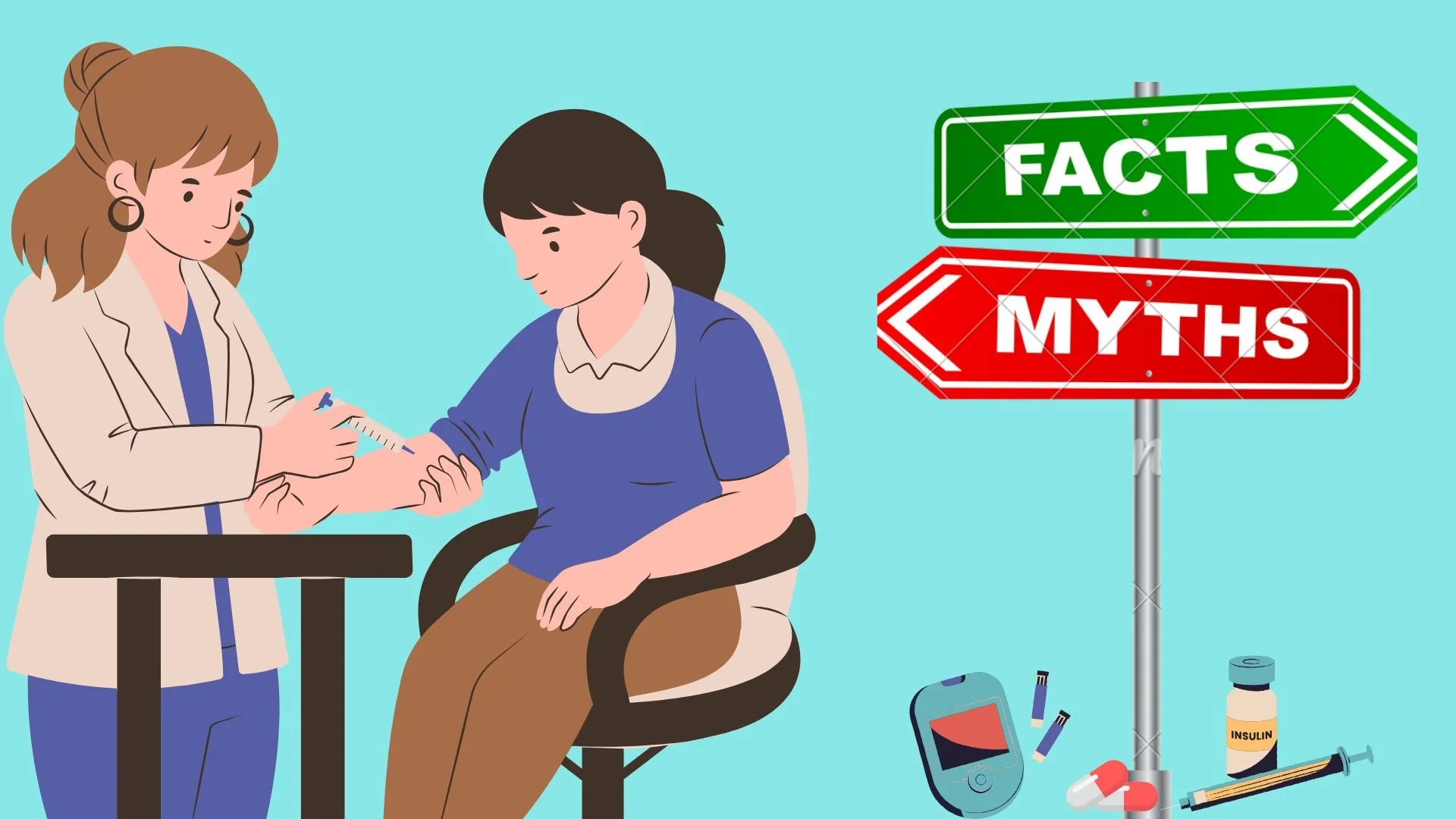Type 1 diabetes is more serious than type 2
Nowadays, everyone thinks that Type 1 diabetes is more serious than Type 2. Type 1 diabetes often develops in childhood or early adulthood, requiring constant insulin management to prevent life-threatening complications. But the fact is that both type 1 and type 2 diabetes can lead to severe complications such as heart disease, kidney failure, and nerve damage if poorly managed. While type 1 requires lifelong insulin from diagnosis, type 2 often progresses silently, with complications developing before detection, making both equally serious chronic conditions (1).
Only older people get type 2 diabetes
Diabetes Type 2 has traditionally been considered a disease of adults, often referred to as "adult-onset diabetes" because it is most commonly diagnosed in people over 45 in early years.
But now it is increasingly being diagnosed in younger age groups, including children, adolescents, and young adults, as a result of changing lifestyles and increasing obesity rates. Studies show that the annual increase in the incidence of type 2 diabetes was 4.8% among youth (2 &3).
No one in my family has diabetes, so I don’t have to worry
Family history A offers not only a pattern of risk for the condition, but also diabetic awareness and mitigative action. It may serve as an effective screening strategy in trying to postpone or prevent diabetes (4).
Family background is a strong telling independent predictor of type 2 diabetes, even after consideration of important associated risk factors such as heritability, physical activity, and BMI. Asking about family history proved more useful than complex genetic risk scores (5).
Research indicates that “overfeeding through insulin overdrive” preconditioned people having a family history of type 2 diabetes, preceding obesity (6).
I will likely develop diabetes because I am overweight
The general public often had a misconception that the obese figure of a person had a relationship with diabetes or that obesity causes diabetes.
But the fact is that obesity increases the risk of developing type 2 diabetes, but it isn't a guarantee. The development of type 2 diabetes is influenced by a mix of many other factors, including genetics, lack of physical activity, diet, and environmental factors, not just weight alone. On the other hand, many overweight people never develop diabetes, while others of a healthy weight may still develop the condition (7).
Reference
Forbes, J. M., & Cooper, M. E. (2013). Mechanisms of diabetic complications. Physiological reviews, 93(1), 137-188.
Gangrade, S. (2016). Diabetes – a new global threat [Journal-article]. International Journal of Scientific Research & Growth, 1(5). (ISSN: 2456-1363.), 145–146.
Mayer-Davis, E. J., Lawrence, J. M., Dabelea, D., Divers, J., Isom, S., Dolan, L., ... & Wagenknecht, L. (2017). Incidence trends of type 1 and type 2 diabetes among youths, 2002–2012. New England Journal of Medicine, 376(15), 1419-1429.
Hariri, S., Yoon, P. W., Qureshi, N., Valdez, R., Scheuner, M. T., & Khoury, M. J. (2006). Family history of type 2 diabetes: a population-based screening tool for prevention?. Genetics in Medicine, 8(2), 102-108.
InterAct Consortium robert. scott@ mrc-epid. cam. ac. uk. (2013). The link between family history and risk of type 2 diabetes is not explained by anthropometric, lifestyle or genetic risk factors: the EPIC-InterAct study. Diabetologia, 56, 60-69.
Samocha-Bonet, D., Campbell, L. V., Viardot, A., Freund, J., Tam, C. S., Greenfield, J. R., & Heilbronn, L. K. (2010). A family history of type 2 diabetes increases risk factors associated with overfeeding. Diabetologia, 53, 1700-1708.
Zimmet, P., Alberti, K. G. M. M., & Shaw, J. (2001). Global and societal implications of the diabetes epidemic. Nature, 414(6865), 782-787.
IMAGE
All are created using Canva




